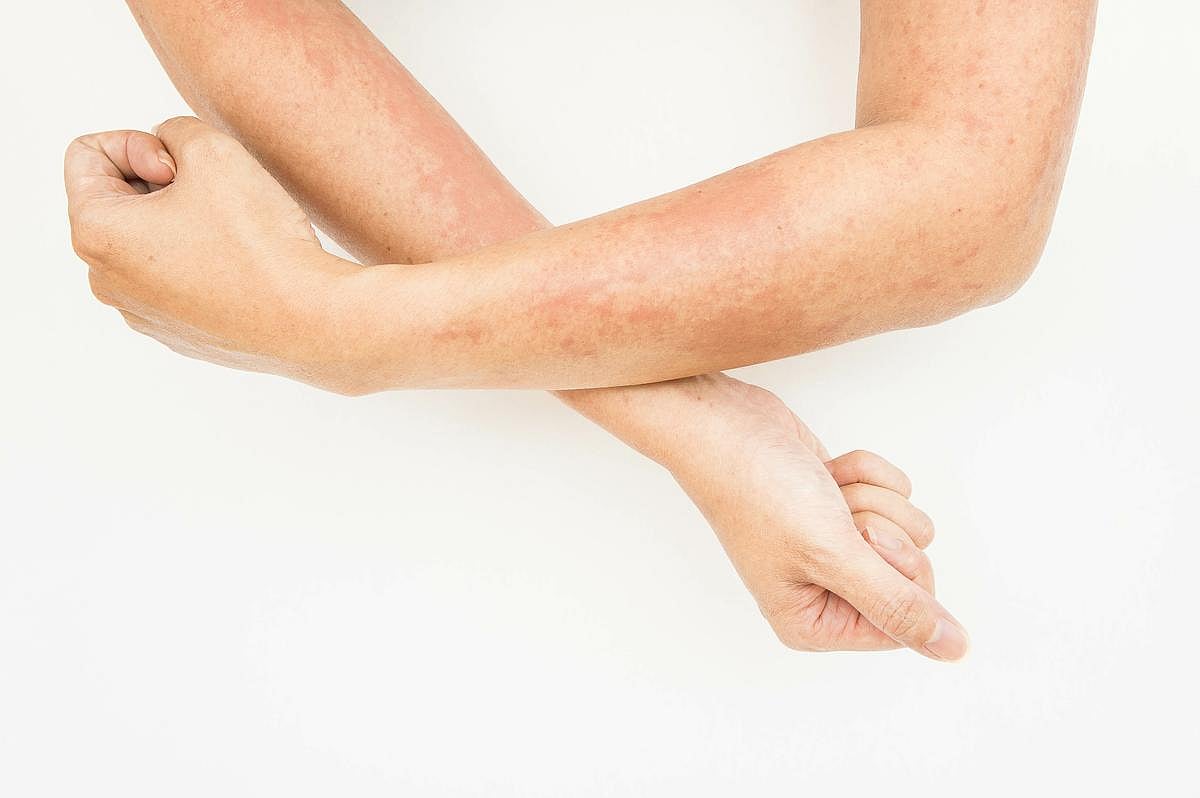Manténgase sano!

- Ernie Mundell
- Posted November 15, 2024
Breathing Dirty Air Might Raise Eczema Risks
Cases of the autoimmune skin condition eczema appear to rise in areas most plagued by air pollution, new research shows.
Since data has long shown that rates of eczema -- clinically known as atopic dermatitis -- increase along with industrialization, dirty air might be a connecting link, according to the team from Yale University.
“Showing that individuals in the United States who are exposed to particulate matter [in air] are more likely to have eczema deepens our understanding of the important health implications of ambient air pollution," wrote researchers led by Yale School of Medicine investigator Gloria Chen.
Her team published its findings Nov. 13 in the journal PLOS ONE.
According to the National Eczema Association, over 31 million Americans have the skin disorder, "a group of inflammatory skin conditions that cause itchiness, dry skin, rashes, scaly patches, blisters and skin infections."
The exact causes of eczema aren't clear, but it's thought to originate in an an overactive immune system that responds to certain environmental triggers.
Could air pollution be one of those triggers?
To find out, the Yale team looked at data on almost 287,000 Americans, about 12,700 of who (4.4%) had an eczema diagnosis.
They compared local eczema rates against levels of air pollution in zip codes across the United States.
Chen's team focused especially on what's known as "fine particulate matter" -- microscopic bits of pollution that can get deep into the lungs with each breath.
The result: With every increase of 10 micrograms of fine particulate matter per square meter of air that was recorded in a zip code, residents' odds for eczema doubled, the Yale group found.
That risk assessment held even after the researchers factored in other possible triggers, including smoking.
The study couldn't prove a cause and effect relationship, only associations. But the team pointed to similar findings from studies conducted in places as varied as Australia, Germany and Taiwan.
Besides playing a role in the development of eczema, "individuals [already diagnosed] with eczema may be at elevated risk for disease exacerbation or acute flares" when local air quality declines, the researchers wrote.
On very smoggy days, "patients may be advised to stay indoors, filter indoor air or cover exposed skin outdoors," Chen and colleagues added.
More information
Find out more about eczema at the National Institute of Allergy and Infectious Diseases.
SOURCE: PLOS ONE, Nov. 14, 2024





